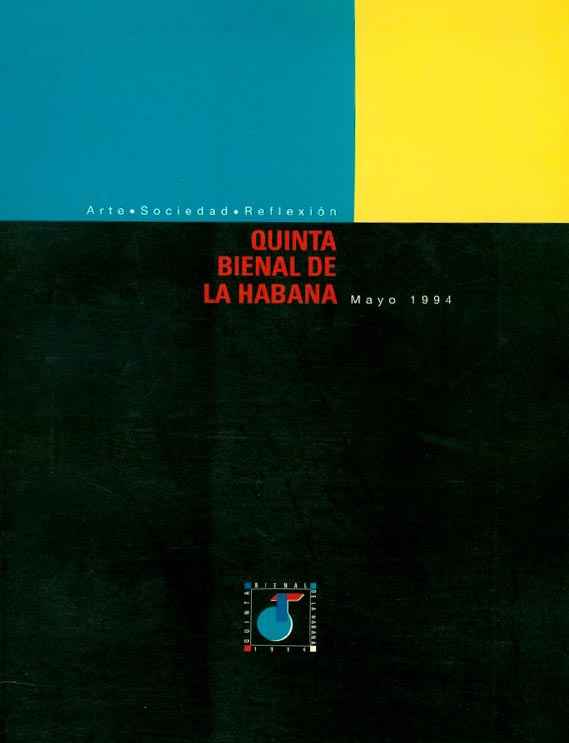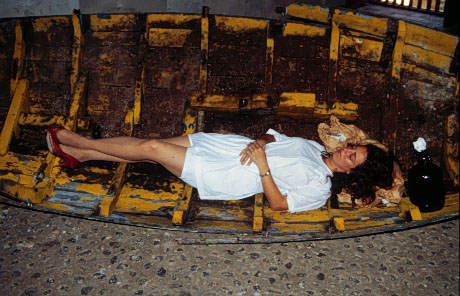Antonio Eligio (Tonel)
May 1994
From: Eligio (Tonel), Antonio. “La otra orilla [The Other Shore],” V Bienal de la Habana Catalog, May, Havana, 1994.
The Other Shore
by Antonio Eligio (Tonel)
Tania Bruguera is knitting a rope that is her work itself and attempting the difficult balance of walking on it. She has knitted the identity of other women (Marilyn Monroe, Ana Mendieta) as if calling ancestors to contaminate her with their strength. This creates a fine temptation to consider her activity in terms of rampant feminism. Perhaps it is. But it rather seems to be an attempt to channel her experiences in aesthetic objects that have a greater debt with premeditation and literature than with lyricism. It is not an autobiographical confession as much as the superimposition of biography itself to the – at times torn — texture of society and history. To embody Ana Mendieta, an adolescent migrant, uprooted from everything but from her silhouette, entails a confession of pent-up uprooting by the person who has not migrated or the need of meeting again a motherland of which Tania, supposedly, has never been afar. Tania in the role of Ana is like a call to look at ourselves in the (broken) mirror of the Cubans who carry their country within, just as they carry a tattoo or a scar: on themselves, without nothing to hold on outside.
Her recent projects go back to the idea of the person traveling (to emigration or to death) with meager tools mostly: the framework of a ship, a wax wing, a plumb conch, cotton instead burlap of to caulk. She travels safeguarding her body or sacrificing in favor of her soul. But it may be a restless soul, because the niches, one for each year of the trip, will be empty. No spirit will end up in them. The baggage is ready for the next departure: in paper bags, with clear haste, we may do away with our history or, at least, with the evidence of having had a history. And so nobody knows we will do what we always do: we will publish the news in a paper calling many voices, a simple pretext to listen or read, in all of them, the one that is ours.


